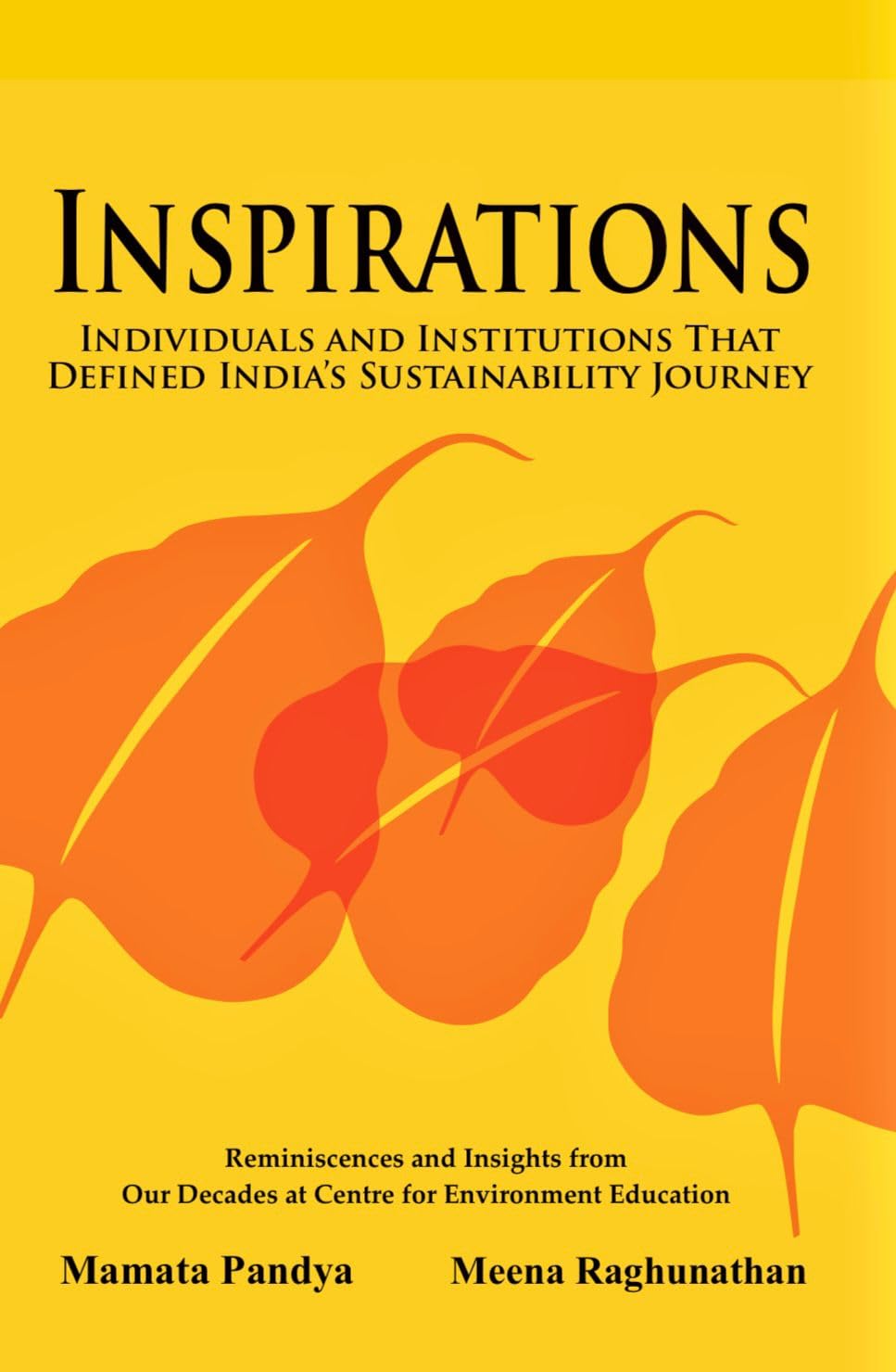Sustainability is often viewed as a modern challenge, yet India’s environmental consciousness has deep roots, shaped by the visionaries and institutions that have worked tirelessly to balance development with conservation. Inspirations: Individuals and Institutions that Defined India’s Sustainability Journey, authored by Mamata Pandya and Meena Raghunathan, serves both as a tribute and a historical documentation of these efforts.
Written in a laudatory style, through engaging narratives and personal reflections, the book focuses on 30 pioneering figures and their invaluable contributions to India’s environmental movement, while also shedding light on key institutions, initiatives and other changemakers.
Pandya and Raghunathan, having worked at the Centre for Environment Education (CEE) for decades, use their firsthand interactions with many of these individuals whose paths intersected with theirs, to add a unique personal dimension to their storytelling. With CEE completing 40 years in 2024, the book also offers reflections on its legacy.
It follows a biographical and institutional approach, highlighting the contributions of influential individuals from diverse sectors—scientists, policymakers, conservationists, and media personalities—who have shaped India’s sustainability landscape. Among the people profiled (a fifth of them women) are Vikram Sarabhai, MS Swaminathan, HS Panwar, Romulus Whitaker, Kiran Karnik and Sunita Narain.
The book not only delves into their professional successes but also educational backgrounds, national and international recognitions, and personal philosophies that shaped their work. Furthermore, it documents the birth and evolution of organisations and institutions, such as The Energy and Resources Institute, Centre for Science and Environment, and the Wildlife Institute of India, as well as landmark conservation milestones, such as the Chipko Movement, Silent Valley Campaign, Wild Life (Protection) Act, 1972, Project Tiger, and the creation of the Ministry of Environment, Forest and Climate Change.
One of the book’s strongest aspects is its compelling and accessible narration. Rather than presenting a dry, academic history, the authors humanise these leaders. By incorporating anecdotes and personal interactions, the book offers a warm and intimate look at these luminaries.
Inspirations also serves as a well-researched archive of India’s environmental journey, covering key moments such as:
- The founding of the Bombay Natural History Society (BNHS) in 1883 and its role in early conservation efforts
- The 1972 United Nations Conference on the Human Environment, where Indira Gandhi addressed the audience
- The 1982 launch of Development Alternatives Group by Ashok Khosla, the world’s first social enterprise focused on sustainable development
- The 1986 National Environmental Awareness Campaign under TN Seshan, which ran for almost three decades
This list also includes milestones in print and television media in India, such as the launches of the Journal of BNHS (1886), Sanctuary Asia (1981), the First State of India’s Environment Report (1982), Discovery Channel (1995) and Animal Planet (1999).
The book highlights community-based conservation efforts and their leaders. Examples include Anupam Mishra, known for his work in traditional water conservation, Vinod Raina, a key figure in the People’s Science Movement and the Right to Education Act, and MK Prasad, a grassroots activist in the Silent Valley Campaign.
At a time when climate change and sustainability dominate global discourse, Inspirations reminds readers of India’s early efforts in environmental protection. The stories of Lavkumar Khachar launching the Nature Club movement, and PR Pisharoty and Erach Bharucha’s pioneering work in remote sensing, highlight how individuals have played a transformative role in shaping practice, policy, and public awareness.
However, in addition to celebrating successes, as inspiration can also stem from challenges and learning from failures, exploring how these people and institutions overcame obstacles and setbacks would have further enriched the narrative, offering a deeper understanding of their resilience and impact.
The book is an informative tribute to India’s conservation and sustainable development journey. As the world grapples with climate change and biodiversity loss, revisiting the lives and legacies of India’s sustainability pioneers becomes more relevant than ever. Inspirations serves as a reminder that sustainability is not just a policy framework but a legacy built by passionate individuals who dared to imagine a better future.





